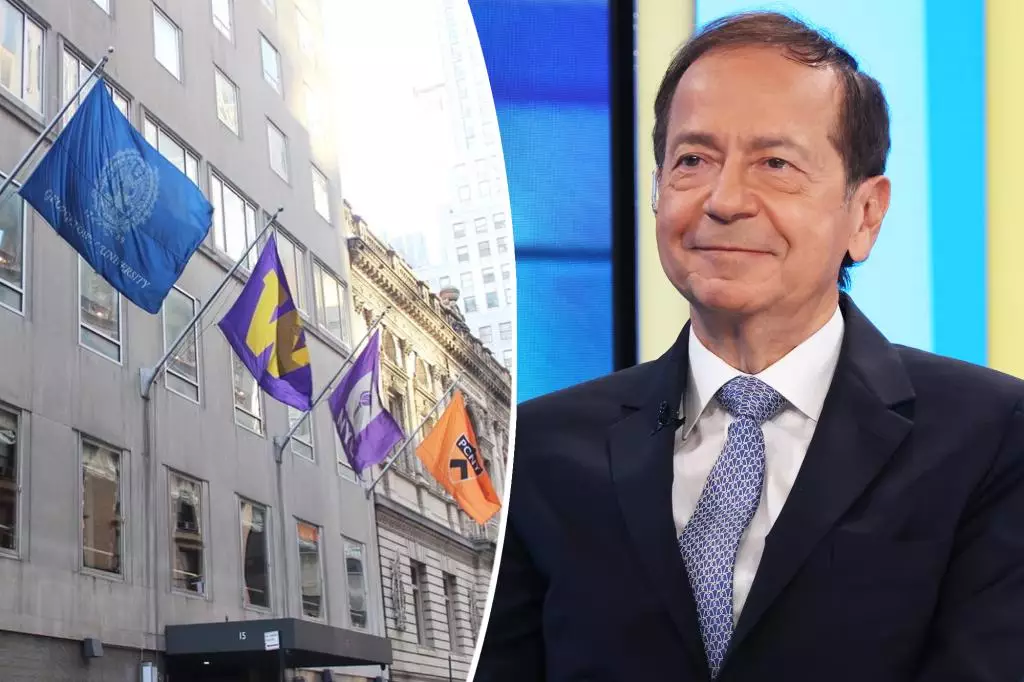In a surprising turn of events, billionaire hedge fund manager John Paulson has purchased the iconic Princeton Club after reading about its impending sale in Page Six. This revelation not only highlights the power of media in shaping business opportunities but also underscores Paulson’s visionary approach to real estate. By stepping in where others hesitated, Paulson has unlocked the potential of a property that faced considerable financial challenges during the pandemic, including defaulting on a hefty mortgage that exceeded $40 million. His affinity for transformative investments is not new; however, it poses an intriguing question: what will the Princeton Club become under his stewardship?
Innovative Ideas for the Future
Paulson envisions a redefined space that appeals specifically to the vibrant community of young professionals seeking a sanctuary in the city. Instead of merely maintaining the status quo, he hints at turning the club into a private haven for “vibrant 20- and 30-year-olds.” Such a shift could represent a significant departure from the traditional feel of the club, catering instead to a demographic longing for modern amenities and a lively atmosphere. This transition may be a deliberate attempt to create a unique identity distinct from the storied history of its Ivy League namesake.
Moreover, he acknowledges the myriad potential uses of the expansive 81,860-square-foot establishment. With elements like restaurants, fitness facilities, and guest accommodations already in place, there is vast scope for creative reimagining. Envisioning spaces where connectivity and collaboration flourish, Paulson may accentuate social aspects within his concept—turning the Princeton Club into a buzzing cultural hub rather than just a gathering spot for alumni.
The Undercurrents of Wealth and Influence
This acquisition also speaks to a broader trend in the luxury market, where the blending of hospitality with social club dynamics is gaining traction. Given Paulson’s substantial influence and previous investments in hospitality, including high-profile resorts in Puerto Rico, it becomes evident that this venture is not simply about real estate—it’s a strategic move to diversify and innovate within a space that many wealthy individuals may soon look to as a viable investment opportunity.
Furthermore, the underlying dynamics of wealth and privilege present an interesting dialogue. The Princeton Club’s transformation could invite scrutiny over elitism and accessibility, leaving one to ponder whether this grand vision will simply become a hidden gem for a selected few rather than opening doors for more diverse clientele.
Anticipating a Dynamic Future
As we look ahead, the implications of Paulson’s acquisition reverberate beyond mere financial transactions—they represent a culture shift in how young professionals network, socialize, and engage in their communities. If Paulson successfully navigates these waters, he could set a precedent for future investor-driven transformations of similar institutions. His initiative serves as a reminder that the right vision and strategy can breathe new life into even the most beleaguered establishments.
With anticipation building, one can’t help but stay attuned to the unfolding narrative around the Princeton Club—will it rise as a phoenix from the ashes of the pandemic, or will it become yet another example of missed opportunity in the luxury sector? The answer could well redefine urban social spaces for years to come.

